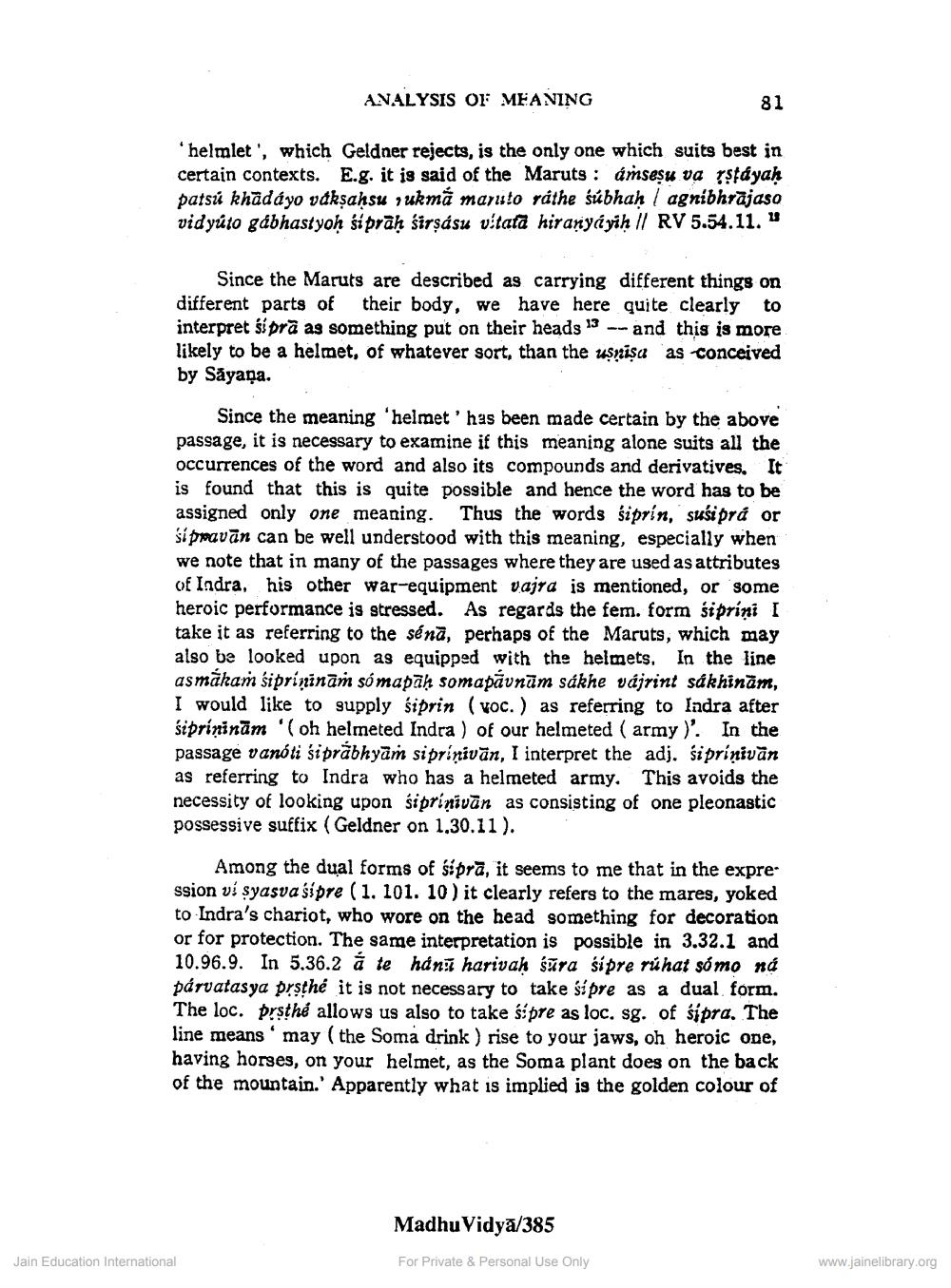________________
ANALYSIS OF MEANING
81
'helmlet', which Geldner rejects, is the only one which suits best in certain contexts. E.g. it is said of the Maruts : ámseşu va istayaḥ patsú khädáyo vákşahsu ukmå maruto ráthe súbhah lagnibhrājaso vidyúto gábhastyoh śíprah sirşásu vitata hiranyáyih Il RV 5.54.11."
Since the Maruts are described as carrying different things on different parts of their body, we have here quite clearly to interpret šípra as something put on their heads 13 --and this is more likely to be a helmet, of whatever sort, than the uşnişa as conceived by Sayaņa.
Since the meaning 'helmet'has been made certain by the above passage, it is necessary to examine if this meaning alone suits all the occurrences of the word and also its compounds and derivatives. It is found that this is quite possible and hence the word has to be assigned only one meaning. Thus the words siprin, suśi prá or śípravān can be well understood with this meaning, especially when we note that in many of the passages where they are used as attributes of Indra, his other war-equipment vajra is mentioned, or some heroic performance is stressed. As regards the fem. form siprini I take it as referring to the senā, perhaps of the Maruts, which may also be looked upon as equipped with the helmets. In the line asmäkań śiprininām só mapāh somapävnām sakhe vájrint sákhinām, I would like to supply siprin (voc.) as referring to Indra after siprininām '(oh helmeted Indra) of our helmeted ( army)'. In the passage vanóti si prābhyās siprinivān, I interpret the adj. śiprinivän as referring to Indra who has a helmeted army. This avoids the necessity of looking upon siprinivan as consisting of one pleonastic possessive suffix (Geldner on 1.30.11).
Among the dual forms of siprā, it seems to me that in the expression vi syasva sipre (1. 101. 10) it clearly refers to the mares, yoked to Indra's chariot, who wore on the head something for decoration or for protection. The same interpretation is possible in 3.32.1 and 10.96.9. In 5.36.2 å te hangi harivah sāra sípre rúhat so mo na párvatasya prsthé it is not necessary to take spre as a dual form. The loc. prsthé allows us also to take spre as loc. sg. of sipra. The line means ' may (the Soma drink ) rise to your jaws, oh heroic one, having horses, on your helmet, as the Soma plant does on the back of the mountain.' Apparently what is implied is the golden colour of
Madhu Vidya/385
Jain Education International
For Private & Personal Use Only
www.jainelibrary.org




